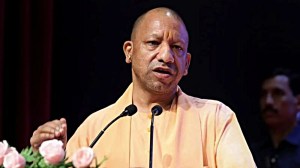‘The LoC’s status will not be changed unilaterally or by violence’
Neither the United States nor India want our bilateral relationship to be conducted through the prism of India’s relationship with Paki...

Neither the United States nor India want our bilateral relationship to be conducted through the prism of India’s relationship with Pakistan. The United States — as much as India — wants to devote the time we spend talking about the threat of conflict in South Asia to other, more positive issues.
America — as much as India — is eager to see a thriving, peaceful and democratic India take its place in the world. But it is simply a fact of life that India will not realize its immense potential on the global stage until its relationship with Pakistan is normalized.
If India were to have a better relationship with Pakistan, it would be free to emerge as the major world actor that it ought to be. The festering conflict with Pakistan distracts India from its larger ambitions, helps create the environment that scares off capital, and absorbs valuable resources.
The ability of both Pakistanis and Indians to reap the benefits of the 21st century will depend to a large degree on their willingness to build a more normal relationship with one another. The current situation is distinctly abnormal — even by the standards of adversaries.
Today, the Indo-Pakistani relationship is less developed than that between the United States and the Soviet Union at the height of the Cold War. Even in the worst of times, trade flowed between the two countries, Washington and Moscow hosted ambassadors from the other country, and cultural exchanges went ahead.
Throughout the Cold War, the United States and the Soviet Union — who were not neighbours like India and Pakistan, but two countries on opposite sides of the globe — recognized that maintaining considerable interaction was in their mutual interest.
In the absence of the most basic contacts and the most minimal lines of communication, tension between India and Pakistan constantly risks sparking a broader conflict with potentially cataclysmic consequences – for India, for Pakistan, for the region, and, if I might say, for the United States.
But, even if such a conflict never materializes, the omni-present specter of it has huge tangible costs. It limits the ability of both India and Pakistan to seize opportunities to better the lives of their peoples. The time, energy, and resources New Delhi and Islamabad now devote to countering one another could instead be focused on tackling respective domestic challenges as well as the problems of Asian stability writ large.
Given the wide repercussions of Indo-Pakistani tensions, it is no wonder that the international community has repeatedly called on the Indian and Pakistani governments to normalize their relationship. It is a responsibility they have to their own peoples, to their neighbors, and all of humanity.
The world is not asking India and Pakistan to do anything that other states have not done. Numerous countries have moved beyond their own contentious histories in order to secure a better future. Look at Germany and France, Japan and Korea, Brazil and Argentina. And now the United States and Russia.
A more normal relationship between India and Pakistan is not impossible to envision. Normalcy does not mean an absence of disagreement. Rather, normalcy means a resilient relationship that would allow India and Pakistan to weather inevitable shocks and setbacks without the risk of violent conflict or a nuclear crisis.
Normalcy means that differences are resolved through diplomacy, not force.
In this time of heightened tension, we are in an unusual situation where neither country has a High Commissioner in the capital of the other. But even in less tense times, diplomatic presence and exchange was minimal. An expansion of diplomatic links could facilitate people-to-people contacts and lay the groundwork for greater bilateral cooperation on a range of common interests.
Normalcy also means a relationship wherein Indians and Pakistanis from all walks of life can easily travel to the other country for family visits, tourism, sports or business. It should not take more time to fly from New Delhi to Islamabad than it does to fly from Delhi to London.
Normalcy means that the cricket matches between India and Pakistan that once captivated millions in South Asia and around the world would be only one of many kinds of people-to-people interaction.
Normalcy means market-driven commerce. Today, legal trade and investment between the two countries is virtually non-existent.
Developing natural commercial links could bring greater prosperity to both countries and, in the process, build constituencies for normalization and increase the stake that each country has in the peaceful resolution of disputes. In this regard, it is time to take practical steps to bring about a South Asian Free Trade Area.
Most of all, normalcy
means that Kashmir would be addressed peacefully. In fact, much has already changed in Kashmir, even since my last visit to South Asia this past autumn. The United States welcomes the new state government in Jammu and Kashmir and commends its bold initiatives to reduce tensions and bring about a climate of reconciliation in a region that has too long been mired in strife.
And we are pleased by the commitment of the central government to hold a serious dialogue with the J&K state government and others in Kashmir. These discussions are essential if the quest to improve the lives and livelihoods of the Kashmiri people is to succeed.
Now is clearly a moment of opportunity in Kashmir — one that New Delhi, the Mufti government, and the people of the region can collectively translate into tangible political and economic benefits. Such efforts will not in themselves ‘‘solve’’ the complex issues of Indo-Pakistani differences, terrorist violence, human rights, and governance that converge in Kashmir. But they are important steps in the right direction. They will bring Kashmir closer to a solution that will be peaceful and honorable for all sides, one that will allow Kashmiris to live their daily lives in safety, with dignity and opportunity.
Sadly, this opportunity continues to be narrowed by terrible acts of violence in Kashmir. I am saddened by the recent assassination of Abdul Aziz Mir, one of the governing coalition’s Assembly members. I am also deeply disturbed by the horrific murders of three young Kashmiri women on 19 December and by the deaths of others in subsequent weeks.
Let me be clear: violence serves the interests of no one. As Mehbooba Mufti, vice-president of the People’s Democratic Party, said in a recent party statement, ‘‘It is a historic fact that the gun yields nothing, but adds miseries to the people and users.’’
I cannot predict what a solution to the Kashmir problem might look like or when it will come. But there are a few things about which I am certain. First, the status of the Line of Control will not be changed unilaterally.
Second, the LOC will also not be changed by violence. To the contrary, in the absence of a jointly agreed Indo-Pakistani alternative, everyone should act to ensure the continued sanctity of the Line of Control.
For its part, the United States will continue to urge President Musharraf to do everything in his power to permanently end infiltration into Kashmir. Pakistanis must realize that this infiltration is killing their hopes for a settlement to Kashmir.
I have been to Pakistan many times, most recently this past October. I believe I have an appreciation for the depth of feeling Pakistanis have for Kashmir. Nevertheless, I would discourage Pakistanis from allowing their focus on resolving the Kashmir dispute to block progress on other issues that involve India and that hold out the promise of an improved bilateral relationship.
I have worked on regional conflicts for almost three decades — be it Cyprus, Northern Ireland, or the Middle East. And if there is one lesson I have learned, it is that the inability to resolve big issues should not stop progress on the little ones. The path to large breakthroughs is often paved with agreements on small issues.
The United States stands shoulder to shoulder with India in its battle against terrorists, be they those who struck at New York and Washington in September 2001 or those who targeted the Indian Parliament a few months later.
Indeed, given all that India has suffered at the hands of terrorists, I can understand Indian government statements that India will not have a dialogue with Pakistan until terrorism emanating from Pakistani territory ends.
However, I am concerned that such a position does not provide the basis for a sound, long-term policy for India to deal with its neighbor. Indeed, I would argue that India, like Pakistan, has an interest in removing conditions to dialogue. India is too great a country, too important a regional and potentially global player, to allow a relationship with a neighbor to keep it from realizing its potential on the world stage.
Resuming a range of contacts with Pakistan at this time would not mean rewarding terrorism. Indians should not view efforts to improve relations with Pakistan as a favor to its neighbor. Rather, New Delhi should seek to diminish tensions with Islamabad as a way of securing a better future for itself.
India should also recognize that there are important developments unfolding in Pakistan that can contribute to a more stable, secure region. I would hope that New Delhi would respond to these changes by taking small steps — beyond the welcome reduction in military deployments on the international border.
India could acknowledge encouraging events where they exist, including Pakistan’s assistance in the war against Al Qaida and the Taliban, President Musharraf’s vision of a reformed Pakistan, and the emergence of civilian leaders. India should look for opportunities to reach out to and reinforce the new civilian government in Islamabad.
Supporting positive developments in Pakistan does not mean condoning or overlooking the many serious matters that Pakistan still must address. But it does mean saying and doing things that help encourage favorable trends within Pakistan and make possible more normal ties with it.
Photos


- 01
- 02
- 03
- 04
- 05





























